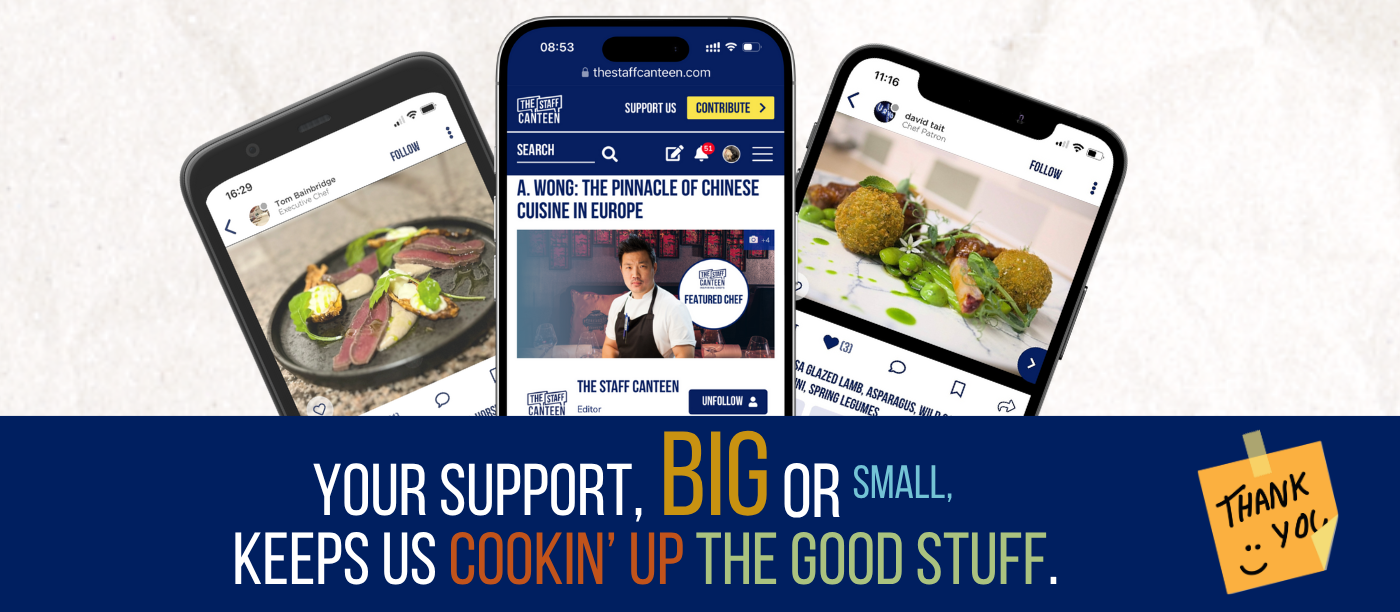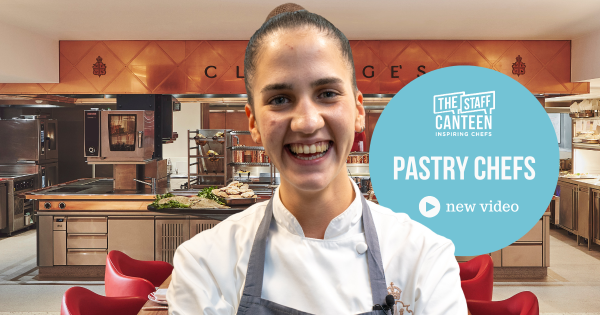William Curley, chef patissier who has worked with numerous Michelin starred chefs and was awarded the ‘Master of Culinary Arts’ by The Royal Academy of Culinary Arts.
We dig a little deeper to find out what they are hiding under those chef whites – next up is William Curley, chef patissier who has worked with numerous Michelin starred chefs and was awarded the ‘Master of Culinary Arts’ by The Royal Academy of Culinary Arts.
William Curley was raised in Fife for most of his childhood in a working class family where his father worked as a dock worker. However, despite the humble beginnings, it wasn’t long before William Curley realised that he wanted to devote his life to fine food.
William has trained with some of the country’s finest chefs including Pierre Koffmann, Marco Pierre White and Raymond Blanc. His ambitions took him to The Savoy Hotel, where he became the youngest chef patissier in history.
But his accomplishments don’t end there, since then William has won Britain’s Best Chocolatier by The Academy of Chocolate four times, a gold medal at The Culinary Olympics and achieved the Master of Culinary Arts by the Royal Academy of Culinary Arts. The highest accolade awarded to chefs in the UK.
Give us a brief now of your day to day role, your operators that you run and a little bit about William Curley what are you up to these days?
My wife Suzue and I have our own business which consists of two patisserie and chocolate shops, one based in Richmond on Thames which opened in 2004, and one based in the centre of London in Belgravia which is now in its second year. It's very exciting, and it's a growing little business. We try to do everything artisanal. We currently employ and train 11 or 12 young and talented chefs within our business. Both the Richmond and Belgravia stores have small kitchens but there's also what I call the Curley Kitchen, a modest production kitchen in Twickenham which is great for Suzue and I as we live close by. The location is great as we are contained and can make all the chocolates, biscuits, cakes and bases for the patisserie, in the production kitchen. The smaller kitchens in both shops are really just where me and my team finish the products off. The Belgravia store is a lot bigger than the one we are sitting in now (Richmond), it has a great little dessert bar, we also offer brunch, and have the space to do a do a lot of demonstrations. It's a very, very active sort of atmosphere, with something new and exciting going on all the time.
11 chefs that's bigger than most Pastry departments in all but a few hotels these days isn't it?
It probably is. As a business we want to do things right, we want to get young people, good people, and we want to show people how to do the right things in the right way. Both shops are currently doing very well and hopefully this year we're going to open a third outlet so that will certainly keep us busy. It's really all about doing things the right way, the proper way, if that makes sense? We always try to buy the best ingredients. We use the best butter, the best cream, and what I believe to be the best chocolate - Amedei, a small company based in Tuscany. Everything we use I believe to be the best - and that does cost money.
You've won numerous awards for your chocolate?
Yes, we have been voted Best British Chocolatier by The Academy of Chocolate for the last few years which is "
Is that good for business as well?
Yes absolutely, it is printed on the windows of our stores and it has been and continues to be great for business. The business, although called William Curley, is an equal venture with my wife and business partner Suzue, this partnership along with the great chefs we have working with us is what makes our business what it is.
Is your wife a pastry chef?
Yes she trained at Cordon Bleu at Claridge's and then at the Savoy where I met her. Suzue is extremely talented in her own right. It's a team thing.
So let's go back seven years then before you opened the business, let's talk about William Curley the pastry chef. You've been to some fantastic operations, Gleneagles, the Le Manoir Aux Quat' Saisons and the Savoy, just three that spring to mind.
Well it began, like I am sure it does for a lot of young guys and girls, after I finished at school and was not really sure what I wanted to do or where to go. I enrolled in the local technical college, Glenrothes in Fife Okay. I enrolled at that time of City and Guilds I was 16. The great thing about cooking is I think you either know you want to do it or you don't and I immediately did. I started the course in Glenrothes and thought, 'Gosh I really like this. I really enjoy this.' It wasn't purely patisserie or chocolate making it involved cooking as well.
Okay so you didn't think at an early stage that you wanted to be a Pastry Chef?
I didn't even know it really existed! I thought you could be a baker but being a Patissier, I thought to myself, wow what was that? I think it was probably when I arrived at Gleneagles that I made the decision that I wanted to become a Patissier. 
So it could have been very different if you had said, "I'll go on the sauce."
Yes, it could have been completely different big man who knows. It was that sort of defining moment but I suppose it was one of those moments I didn't think about"¦I just did it"¦ I enjoyed it and whether I'm artistic or not, other people can work that one out, but I certainly like the creative, artistic part of being a patissier and I enjoy that immensely. One thing just led to another and I settled in at Gleneagles Hotel. I remember when the Roux brothers first patisserie book came out and that really made me think "wow", the whole thing just picked up momentum as I went along.
How different is Pierre Koffman to Raymond Blanc and Le Manoir?
Hugely that's why I went to work at Le Manoir. Again you're developing and learning, and you slowly start to understand the different types of cuisine, you know, Pierre's obviously from the Basque region of France and he has those south western influences and his food's very deep, very rich, very classical.
How long were you at Le Manoir?
I was there for a couple of years. And from there I went to Le Manoir, and then back to London, I always liked London and I still do. I joined Marco (Pierre White) where I spent a couple of years.
 He had a very talented team then didn't he?
He had a very talented team then didn't he?
Man he had Robert Reid, he had Thierry Busset, he had"¦who else did he have, Greg Nicholson, I think he had the lot and the difference between say Marco and Pierre (Koffman), Pierre (Koffman) had hugely young talented"¦no talent is a strong word, a lot of young inexperienced chefs and Pierre rode the kitchen. He(Pierre



 He had a very talented team then didn't he?
He had a very talented team then didn't he?
 Why wre we not seeing another generation of William Curleys coming through because yes in a restaurant they can be creative because they've got that input but at the end of the day they're doing six plates maybe.
Why wre we not seeing another generation of William Curleys coming through because yes in a restaurant they can be creative because they've got that input but at the end of the day they're doing six plates maybe.  The problem for me with patisserie, and getting young people involved, I think is a little bit deeper than that and I think, as an industry, we need to look more at how we view ourselves as an industry, I hate saying television would change it but, probably partly it could.
The problem for me with patisserie, and getting young people involved, I think is a little bit deeper than that and I think, as an industry, we need to look more at how we view ourselves as an industry, I hate saying television would change it but, probably partly it could.










